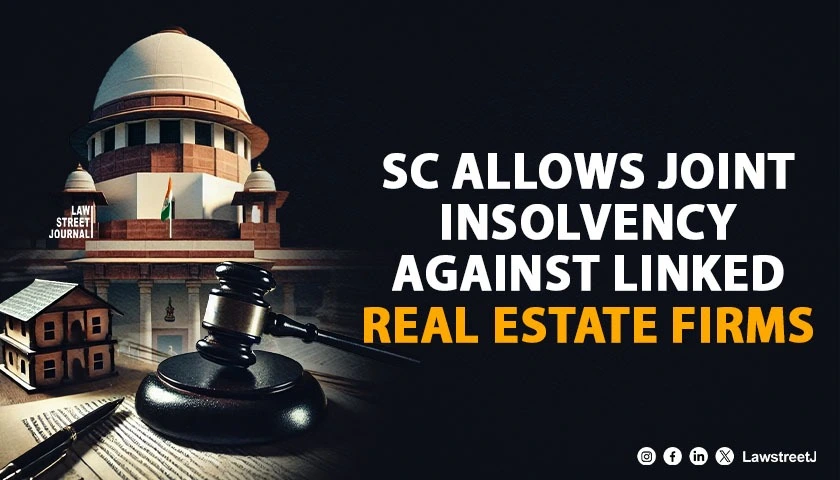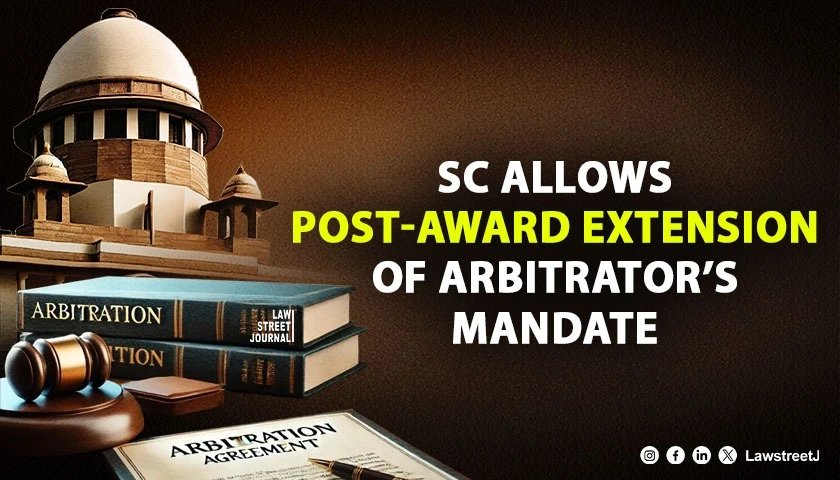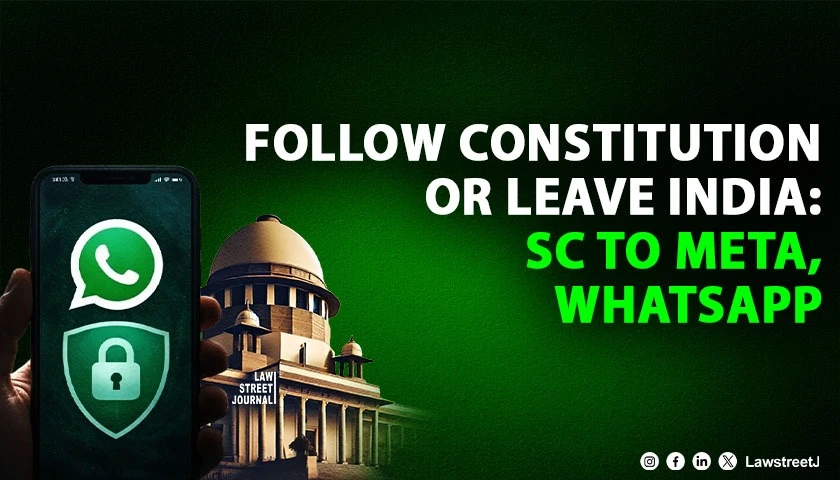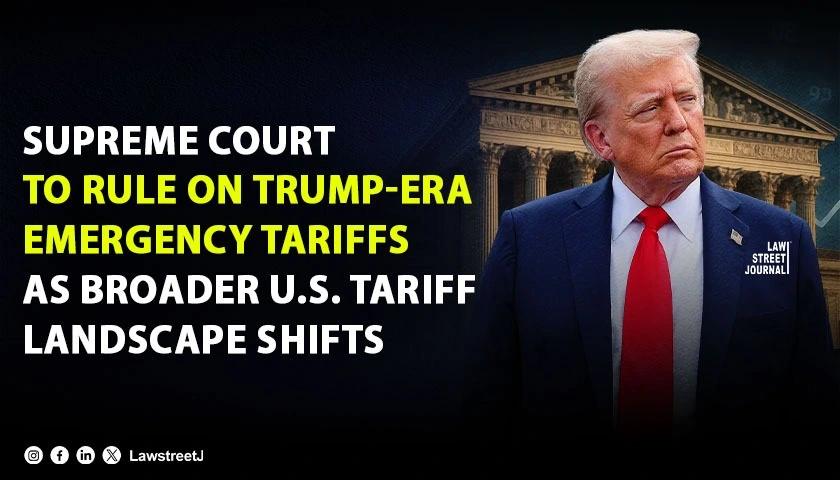The Madhya Pradesh High Court has ordered directives to the police authorities and judicial magistrates in the state for implementation of the guidelines granted in the Arnesh Kumar judgement while having to deal with bail applications, observing that district judiciary is "extremely tight distorted" when granting bail.
The unwillingness of the District Judiciary to abide to the concept of 'bail and not jail' is comprehensible, according to a single judge bench led by Justice Atul Sreedharan. Judges in the District Judiciary have a pervasive worry that they would be questioned by the High Court or that complaints would be filed against them because of unhappy lawyers or litigants if they issue bail orders, which will result in a vigilance investigation.
Additionally, the Court stated that, the necessity of having an unconstrained and fearless District Judiciary cannot be overstated. Inside a state like Madhya Pradesh, where poverty, illiteracy, and a limited resources are widespread, only a free, independent, and unflappable District Judiciary can guarantee that the end user of the justice system receives justice at the first level, rather than having to move higher up the court hierarchy.
Police have been given instructions:
- When the maximum penalty for a crime is up to 7 years in jail, the accused may not be detained by the police as a matter of course. Unless there is a specific statute that requires it.
- In such a circumstance, the police would have had to document why the arrest was necessary to prevent the person from committing any future offences or to conduct a proper investigation of the case or to avoid the accused from influencing evidence to disappear, or based on credible suspicion that the accused might interfere with evidence or hinder a witness from reporting such information to the court or the police, necessitating the accused's arrest.
- Upon detaining an accused for acts carrying a potential punishment of up to 7 years, the State Police is ordered to formulate and produce a check list of pre-conditions that must be met by the police under S. 41(1)(b)(ii) of the Cr.P.C. A copy of the check list must be submitted with the remand application to the Magistrate who has the authority to confine the offender to police or judicial custody.
- When the decision is made not to arrest the defendant, the police must notify the Magistrate within two weeks of the FIR being filed. The Superintendent of Police of the respective district might extend this timeframe for reasons that must be documented in writing.
- When the accused must be interrogated, a notice under S. 41A Criminal Procedure Code or S. 160 Criminal Procedure Code be delivered upon that accused within two weeks of the FIR being filed, with the Superintendent of Police of the district concerned having the authority to extend the time limit for reasons to be documented in writing.
- When the police doesnt apprehend the accused and the accused appears before the police on a notice u/s. 41A or 160 Cr.P.C. and accompanies the police in the course of the investigation, the police are not to arrest the accused until there are compelling reasons that must be noted.
- If the police fail to comply with the above-mentioned requirements, they will be held in contempt of the court's order, in contrast to any other administrative action that may be taken against the offending officer.
The Judicial Magistrates have been given these instructions:
- While exercising detention powers, the Magistrate must determine whether the arrest made by the police meets the conditions of section 41 of the CRPC, as stated in paragraph 11.2 of Arnesh Kumar's case.
- The Magistrate must determine if the check list is available, as ruled by the Supreme Court in Arnesh Kumar's case, paragraph 11.3.
- If the police doesnt comply with paragraphs 11.2 and/or 11.3 of Arnesh Kumar's case, the Magistrate will not authorise further detention of the accused and will release him immediately, as the arrest was unlawful in the first place, and his detention would be unlawful as well because the police did not comply with the requirements of section 41 of the Criminal Procedure Code.
- In accordance with paragraph 11.4 of Arnesh Kumar's judgement, the Magistrate permitting detention must record his independent contentment and guarantee that his satisfaction for further remand of the accused is met in his order of remand.
- The Magistrate must also determine whether particular reasons for the accused's arrest have been documented, and if those reasons are significant, leading to a reasonable judgement that one of the conditions for the accused's continued custody as an under trial has been met.
- Incompetence on the part of the Magistrate to operate as required herein may result in administrative proceedings being brought against the Magistrate.
The Court further stated in granting the above orders that bail cannot be granted solely because the charges include the conduct of a terrible crime. The maelstrom of hyper-opinionated and uncensored voices on social, print, and electronic media, on the other hand, must be purposefully excluded by the Courts. When deciding on a bail application, public perception must never be considered." The Court decided to keep an eye on things.
When considering bail applications, there are a few things to keep in mind.
- Whether granting bail to the defendant would result in him seeking to intimidate and sway the witness or the investigation's path, either by threats of catastrophic effects or monetary incentives?
- Whether the likelihood of the defendant executing another crime while on bail after his release should be considered when granting bail to recidivists or repeat offenders?
- Is there still a chance that the accused may be the subject of vindictive action by the Complainant if he is released on bail?
- Whether, given the seriousness of the offense claimed against him, the accused's release on bail would generate a reasonable fear of disturbing the peace and social or civil instability?
- When the accused is released on bond, would he destroy the evidence that has yet to be obtained throughout the investigation?
- Is the overpowering nature of the prima facie evidence against the accused such that if he is released on bail, he may be inclined to abscond and dodge the process of justice entirely?
The District Judiciary should also promote an atmosphere in which bail applications can be adjudicated in the first layer of the legal system, according to the Court. Despite the fact that there is no legal requirement that a bail application be resolved within a certain amount of time, the Court found that the interests of justice demand that it be done as quickly as feasible.
According to the Court, to put it another way, the goal must be to ensure that justice is served at the District Court level. As long as his application is not rejected on the grounds, the applicant may be more than willing to try his luck again before the District Courts. The candidate must be offered this option.

![MP HC Issues Directions to Police, Judicial Magistrates for Implementing Arnesh Kumar Guidelines; District Judiciary Extremely Tight-Lipped in Granting Bail [READ ORDER]](/secure/uploads/2021/06/lj_6625_mp_hc.jpg)






